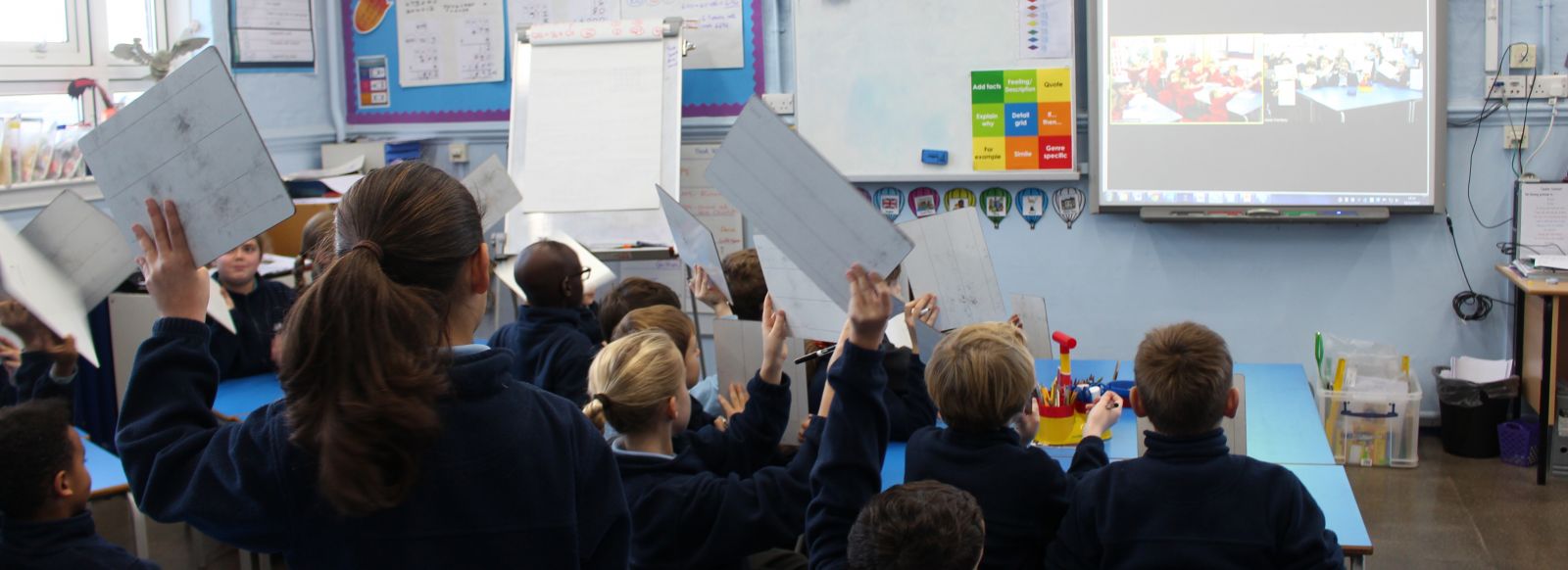"Provision for mathematics is exceptionally strong. Pupils build and master knowledge securely." Q1E Ofsted inspection report, 2019
"It is not for Ofsted to say how children should be taught mathematics, but it is for us to measure schools against high standards and expectations, which in my view you are setting.” Matthew Purves, Deputy Director, Schools for Ofsted - visit to Q1E, 2018
Maths at the Q1E Trust is creative, interesting and fun!
Problem solving is at the heart of our maths teaching and we explore real-life problems using real-life ‘stuff’! Whether we are sharing slices of pizza or chocolate bars in our teaching of fractions, or making equal groups with flowers, cupcakes or even sausages in our teaching of multiplication, our maths lessons use real-life resources.
Across all schools in our trust, maths is taught ‘Singapore style’ using the mastery approach that is at the heart of the National Curriculum. Singapore has consistently ranked amongst the highest countries in the international PISA tests due to their world renowned methods for teaching maths.
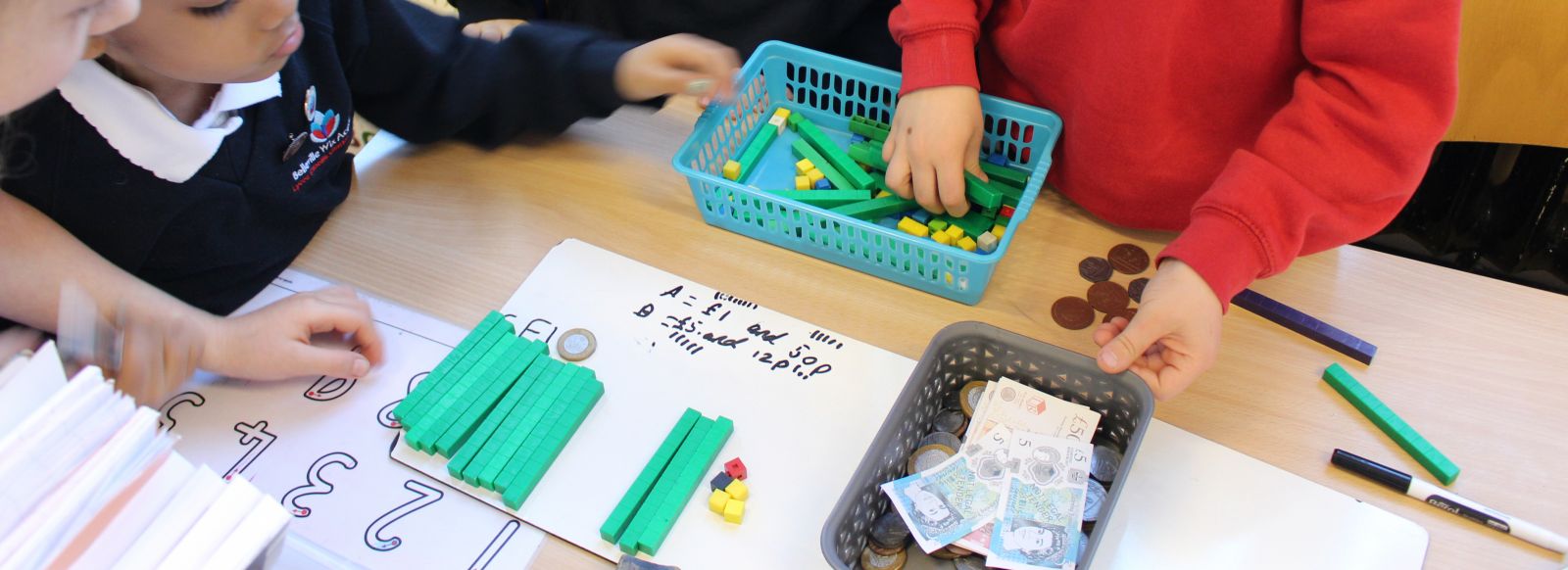
"Manipulatives make it funner and easier to understand and get us to do more things" Isabel, Q1E pupil
"Manipulatives help us understand our thinking because we don’t have to imagine what we need - we can actually feel and see" Kwame, Q1E pupil
As in Singapore, maths at Q1E is taught through the use of the concrete-pictorial-abstract (C-P-A) approach, from Bruner’s enactive-iconic-symbolic modes of representations. This gives our children a deep understanding of mathematical concepts. We use the first DfE recommended textbook and workbook to ensure a clear progression from lesson to lesson over units of learning, building year on year.
Our fantastic reputation for teaching maths extends far beyond our community and we have a strong ethos of sharing knowledge and resources. We co-lead the London South West Maths Hub, we have been awarded Maths - No Problem! accredited school status, and through our Teaching School we developed hundreds of great maths teachers across London and beyond.
Our maths lessons
At Q1E, each highly structured maths lesson flows through a number of core parts, with additional opportunities to consolidate learning, develop conceptual fluency and deepen understanding.
"We work with partners together to solve and understand questions." Louis, Q1E pupil
All our teachers plan lessons in year groups, giving colleagues the opportunity to develop their pedagogical understanding together. As one Ofsted inspector noted, ‘Planning is clear and reflects leaders high expectations. Teachers make sure that pupils develop a secure understanding of important concepts such as place value and number bonds. They select practical resources carefully to deepen pupils’ understanding. This means that pupils have the knowledge they need to understand more complex concepts in the future.’
"Planning is clear and reflects leaders high expectations. Teachers make sure that pupils develop a secure understanding of important concepts." Q1E Ofsted, 2019
Our lessons start with a short practice of known facts to develop our children’s ability to recall rapidly and accurately.
Prior learning is triggered with a recap of the previous learning to ensure knowledge is built upon.
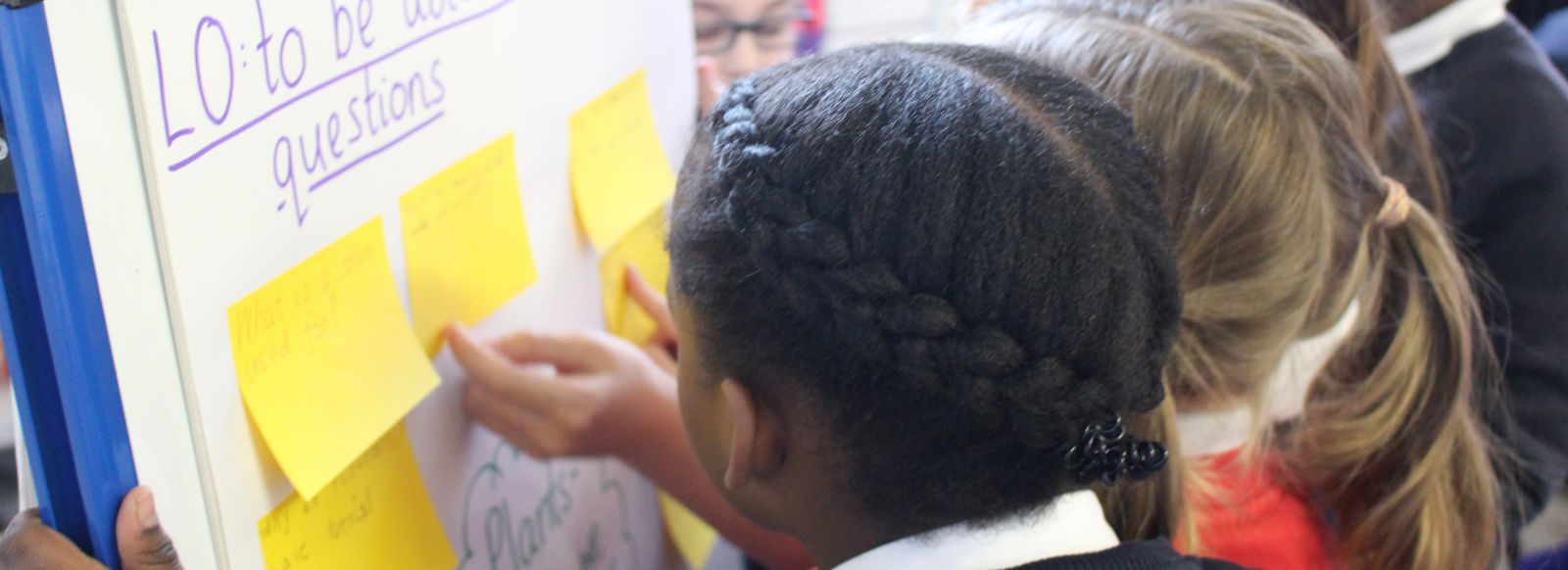
Using the Singapore approach to teaching maths encourages students to explore their thinking using manipulatives and pictorial representations before moving onto the abstract. For quick learners, this gives them opportunity to examine concepts in different ways and make judgements as to the efficiency of different methods as well as articulating their learning with high expectations of the use of mathematical reasoning. For those who may struggle with maths, their understanding is supported through the use of manipulatives.
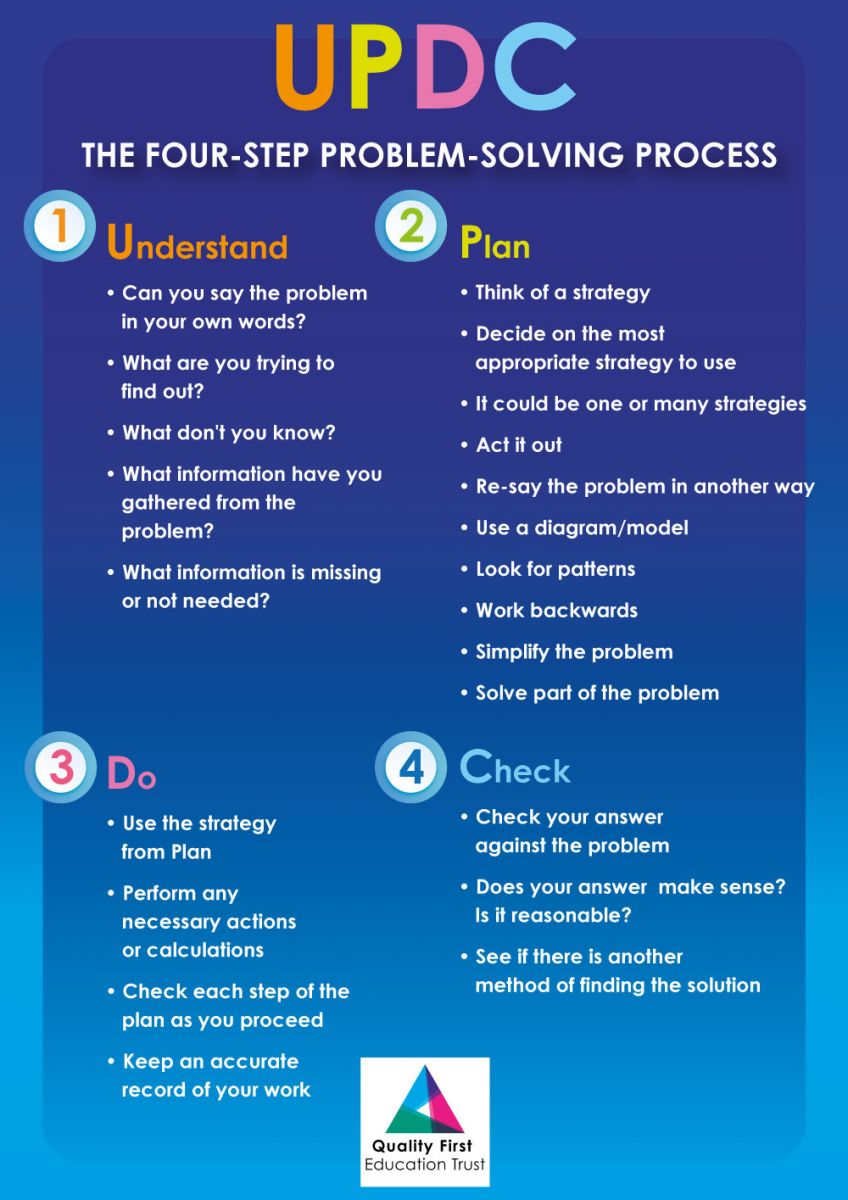 Every lesson develops around an open-ended problem as a starting point for learning. Usually the question can be investigated and answered using multiple strategies with the teacher bringing together ideas to teach the most efficient method. The concrete-pictorial-abstract approach is used throughout to support the deep understanding of concepts. Students solve the main problem with teacher questioning giving opportunity for exploring and articulation of explanations by the students before moving onto practicing the chosen method.
Every lesson develops around an open-ended problem as a starting point for learning. Usually the question can be investigated and answered using multiple strategies with the teacher bringing together ideas to teach the most efficient method. The concrete-pictorial-abstract approach is used throughout to support the deep understanding of concepts. Students solve the main problem with teacher questioning giving opportunity for exploring and articulation of explanations by the students before moving onto practicing the chosen method.
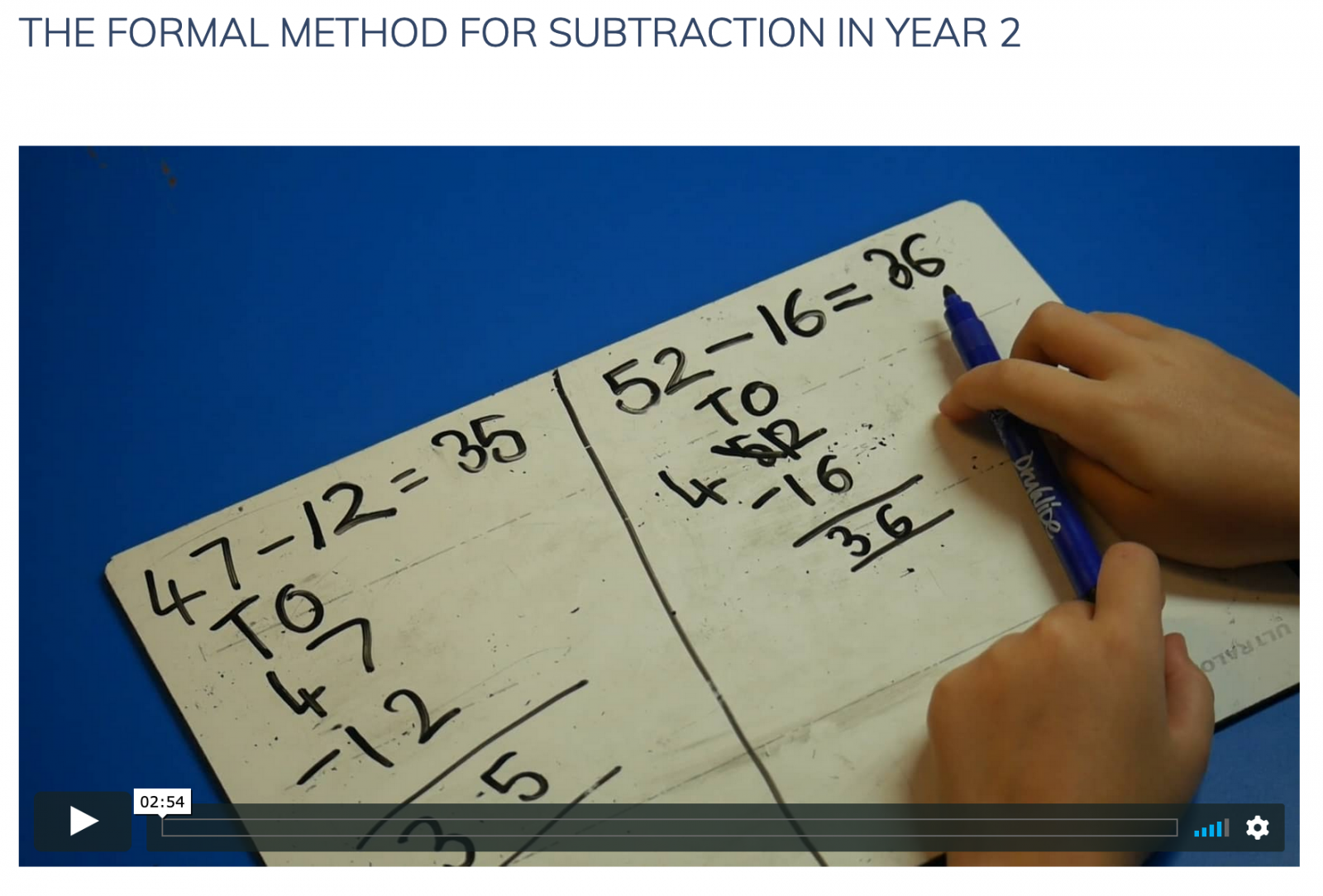 Addressing misconceptions, using mathematical dialogue and taking part in discussions are important parts of our lessons giving our children the opportunity to reason mathematically, develop an argument, justify decisions and compare the efficiency of different strategies.
Addressing misconceptions, using mathematical dialogue and taking part in discussions are important parts of our lessons giving our children the opportunity to reason mathematically, develop an argument, justify decisions and compare the efficiency of different strategies.
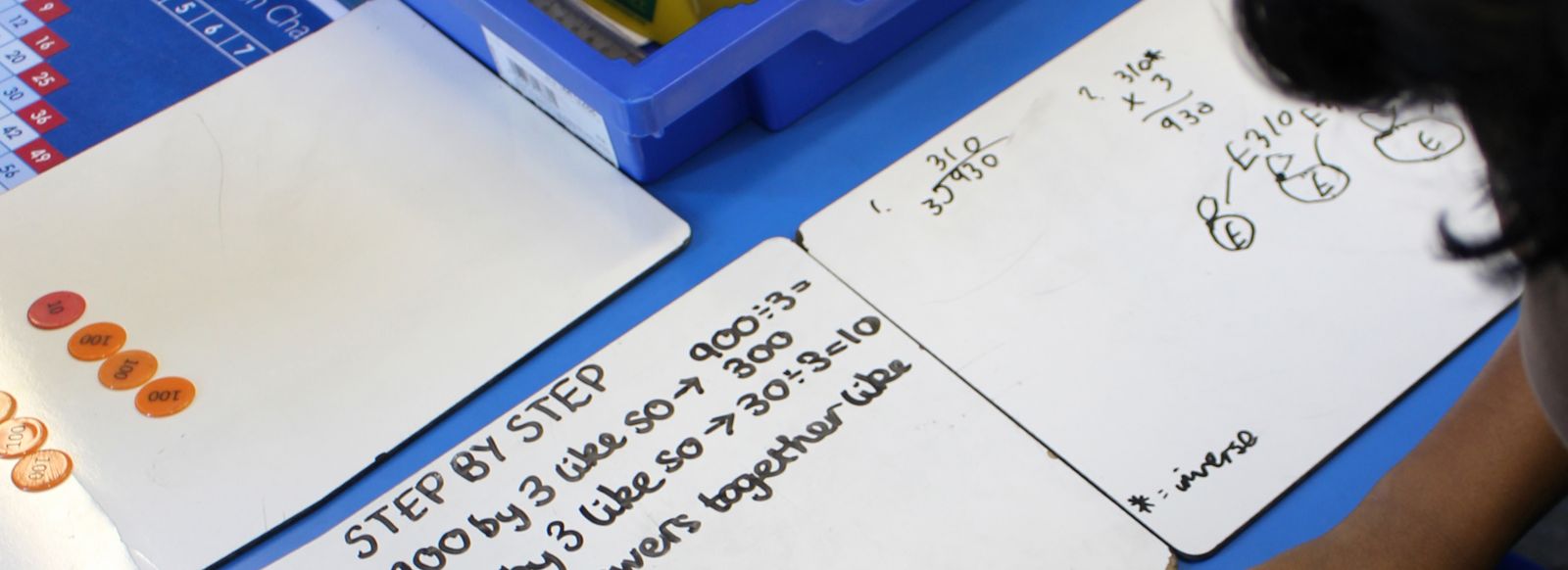
Our students build upon their understanding of maths concept through a series of increasingly difficult problems. They tackle questions that develop in microscopic steps, progressing onto more unfamiliar problems that extend their understanding of the lesson objective.
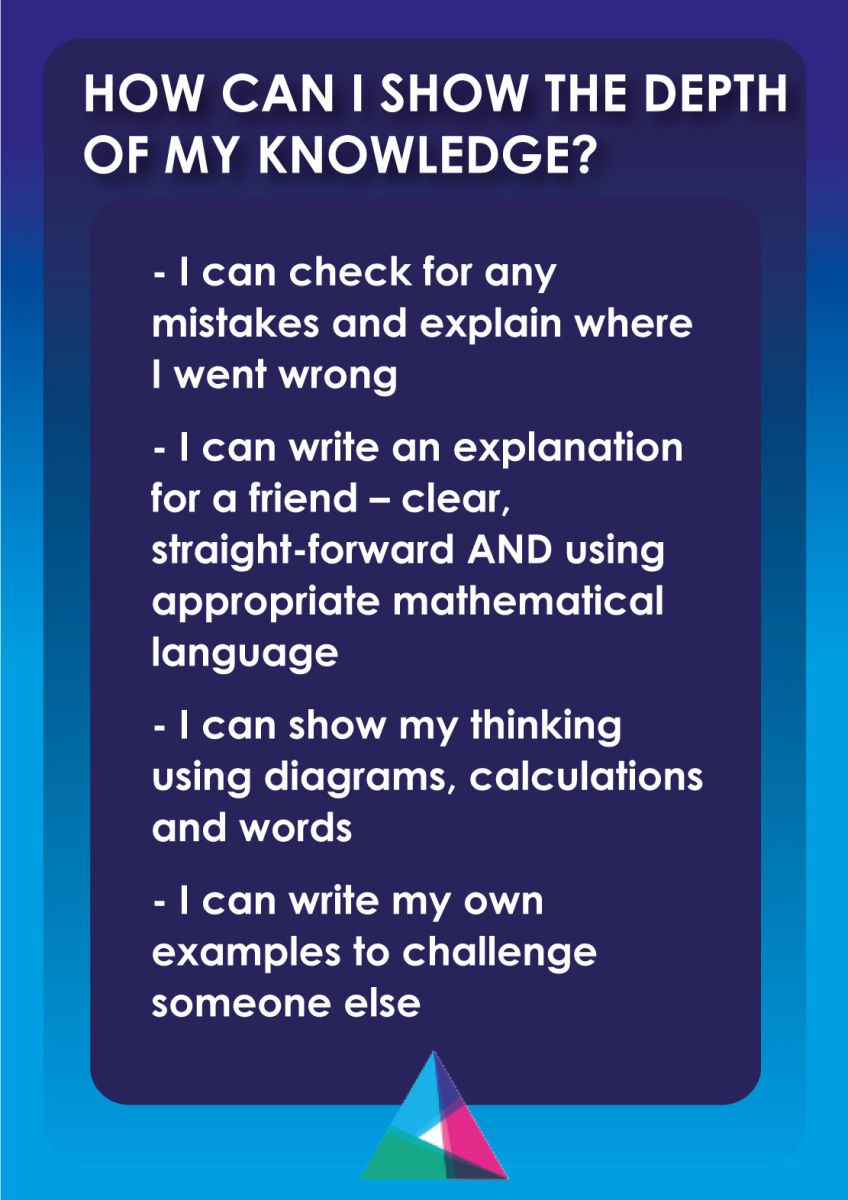 Problems are usually explored in group or paired work, involving lots of discussion and are solved using the concrete-pictorial-abstract approach to promote a deep understanding of the concept. The use of the concrete-pictorial-abstract approach supports struggling learners and encourages creative, joined-up thinking by quick learners.
Problems are usually explored in group or paired work, involving lots of discussion and are solved using the concrete-pictorial-abstract approach to promote a deep understanding of the concept. The use of the concrete-pictorial-abstract approach supports struggling learners and encourages creative, joined-up thinking by quick learners.
Workbooks provide independent practice and additional activities consolidate and deepen conceptual learning. Questions progress through familiar strategies and onto unfamiliar, non-routine problems that develop a deeper understanding of the lesson objective. Additional activities are provided to embed and extend the students’ understanding of their new learning, such as showing the depth of their knowledge in different ways.
.jpg)
Resources
When topics are taught in each year group: Q1E whole school maths overview
Early years expectations: Early years programme of study (Reception and Nursery)
Year 1 to 6 expectations: National Curriculum programmes of study
Further information and resources to support maths learning can be found on year group links in current home learning.
Specific support for learning multiplication tables can be found on school websites.
For example, there are these resources to support with multiplication these resources to support with multiplication
We have also uploaded several maths videos of modelled methods to support learning beyond the classroom
Additional maths activities are available here to support and challenge.

